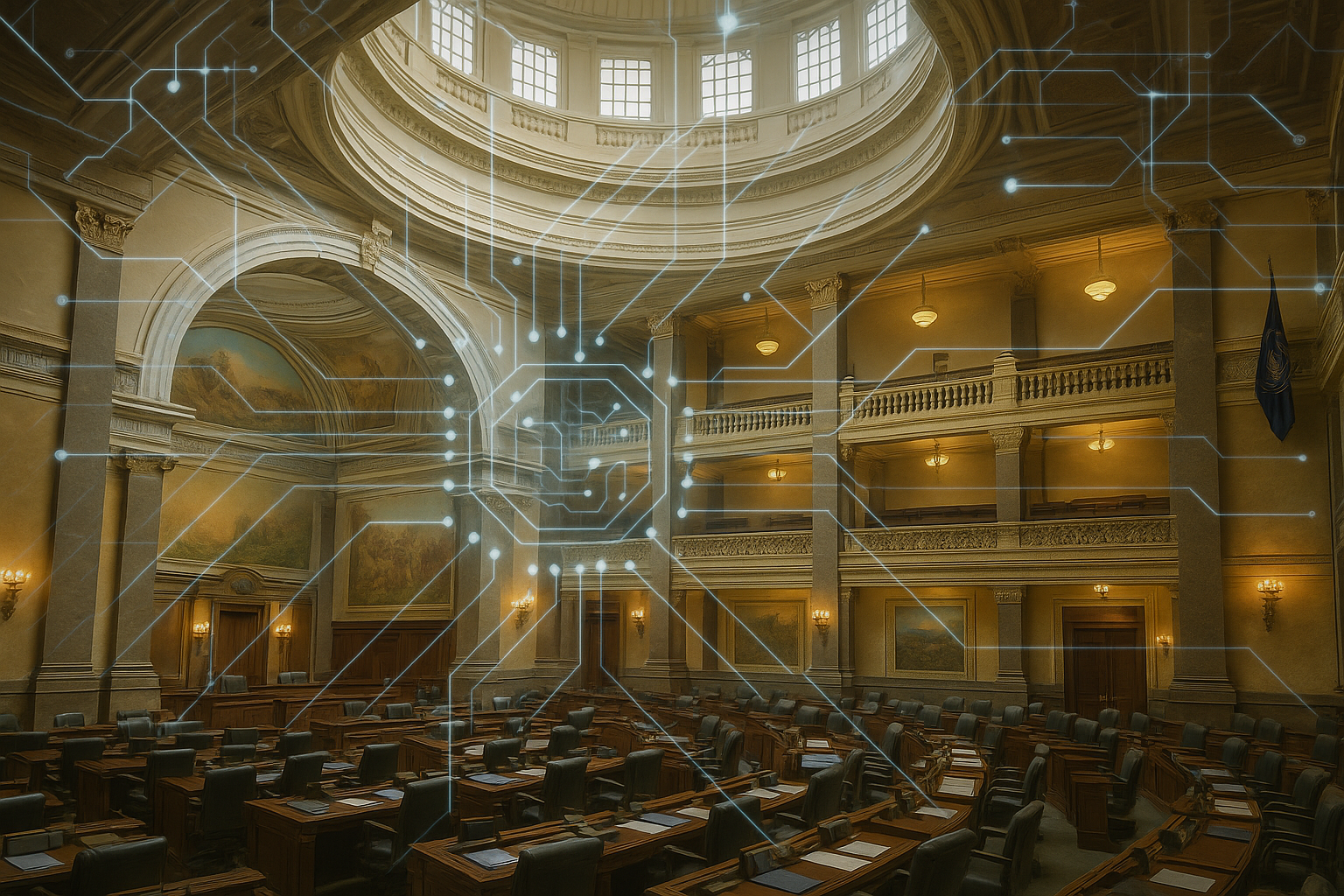
Every legislative session, lawmakers are handed a mountain of bills. Do they read them all? What about all of the changes? They rely on staff summaries, fiscal notes, and the judgment of others. That’s not laziness; it’s math. There just aren’t enough hours in the day.
But artificial intelligence is changing that equation.
AI as an Army of Policy Interns
Used well, AI can do the work of hundreds or even thousands of interns — instantly and consistently — summarizing, comparing, and flagging changes in every bill that comes through the system.
- It can generate plain-language summaries for each bill and link them to the sections of code they change.
- It can highlight what’s new, what’s deleted, and what stays the same.
- It can show who the bill affects — whether it’s an agency, a local government, or ordinary residents.
- And do it all in a format they prefer
Instead of juggling PDFs and guessing what a late substitution does, a legislator could see the main differences and consequences in a clear, single-page summary, for every bill that changed the day before.
Learning from Other States
When a new bill is drafted, one of the first questions should be: Who else has tried this, and what happened? That is one of the key advantages of federalism.
Right now, that kind of comparative research is manual and slow. A policy analyst might spend days searching through other states’ codes or news articles.
AI can change that instantly. It can:
- Search all 50 states for similar bills and their outcomes.
- Produce a table showing which states passed them, how they structured enforcement, and what results they saw.
- Identify patterns: which states repealed a policy, which expanded it, and which faced lawsuits or unintended effects.
That kind of real-time competitive analysis could make Utah’s policy process faster and smarter — not by copying others, but by understanding what works before we vote.
Seeing the Unintended Consequences
When bills move quickly — sometimes changing hours before a vote — unintended consequences slip through as we recently saw with a bill that limited access to public lands.
AI can be trained to scan for these ripple effects:
- Conflicts with existing code or funding streams
- Possible costs to cities or counties
- Legal vulnerabilities or overlapping jurisdictions
- Populations that might be unintentionally excluded or burdened
It can’t replace judgment, but it can spot red flags early, giving legislators time to ask better questions.
Better for Local Governments Too
This doesn’t stop at the state level. Counties and cities pass ordinances, approve zoning changes, and manage budgets under the same information overload.
AI can:
- Summarize dense staff reports in plain English.
- Compare similar ordinances from nearby cities.
- Draft side-by-side lists of pros and cons.
- Flag state-law conflicts before a local vote happens.
Even a small city council could benefit from tools that give them the same kind of instant legislative intelligence larger cities enjoy.
The Human Role Still Matters
AI shouldn’t replace human judgment — it should free it up.
Lawmakers, staff, and citizens still need to check facts, weigh trade-offs, and decide what’s fair.
But if AI can handle the grunt work — tracking, summarizing, and comparing — then the people we elect can focus on values, not formatting.
It’s like having a thousand unpaid interns who never sleep, always on call to explain what changed, what others have tried, and what might happen next.
Example: Bitcoin ATMs
Take a simple but timely example: Bitcoin ATMs.
These machines are popping up across Utah and the country. They’re also showing up in scam reports, where victims are told to deposit cash to “resolve” fake debts or government claims.
Suppose a Utah lawmaker wants to reduce that risk without banning legitimate uses.
Here is a prompt you could try
I want to create a bill in Utah to limit the impact of scams that involve bitcoin atms. I believe that they are primarily used in scams. I was thinking of not letting them take $100 bills. What are other states doing? What are some other ideas? What are any unintended consequences?
AI could instantly:
- Gather every state’s laws and bills on virtual currency kiosks.
- Summarize the rules — like New Jersey’s fee caps, ID requirements, and warning labels.
- Create a chart comparing states and note outcomes or enforcement actions.
- Suggest Utah-specific options: small transaction caps, clear warnings, or registration requirements.
That’s the kind of structured analysis human staff could do — but over days or weeks. AI could do it in minutes. Try it yourself. What problem do you think needs to be solved?
Utah’s Opportunity
Utah already has a foundation with its Office of Artificial Intelligence Policy, but most of the focus has been on how to regulate AI, not how to use it to govern better.
That’s the next step: integrating AI directly into the legislative process, so every lawmaker, city councilmember, and county commissioner can make better-informed decisions in less time.
AI can’t replace our constitutional republic— but it can make it smarter, faster, and more transparent.